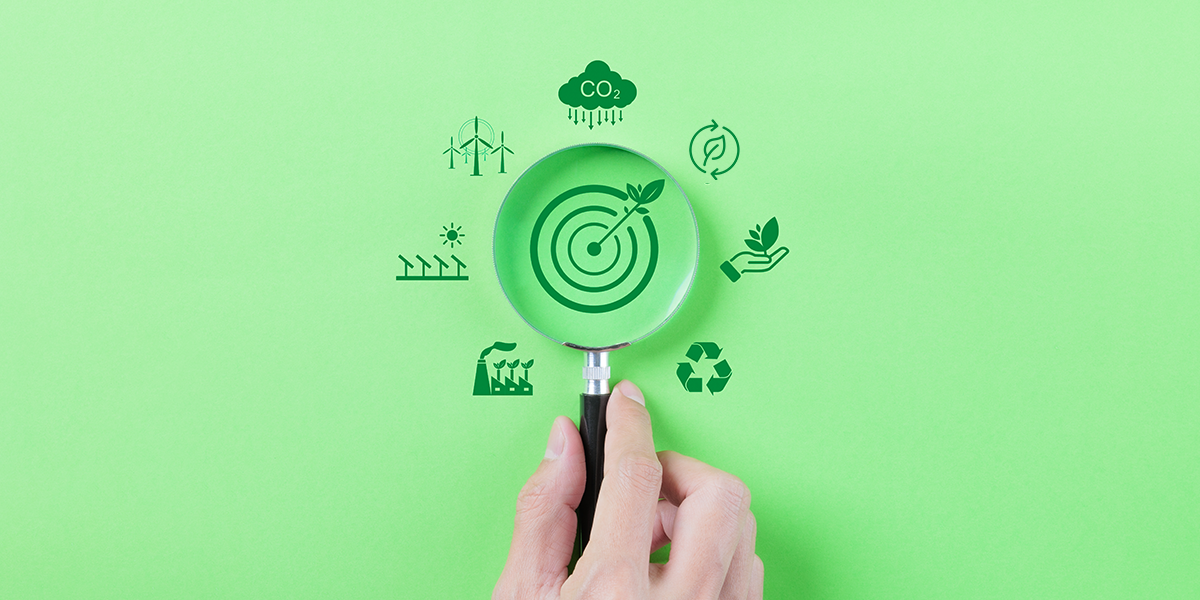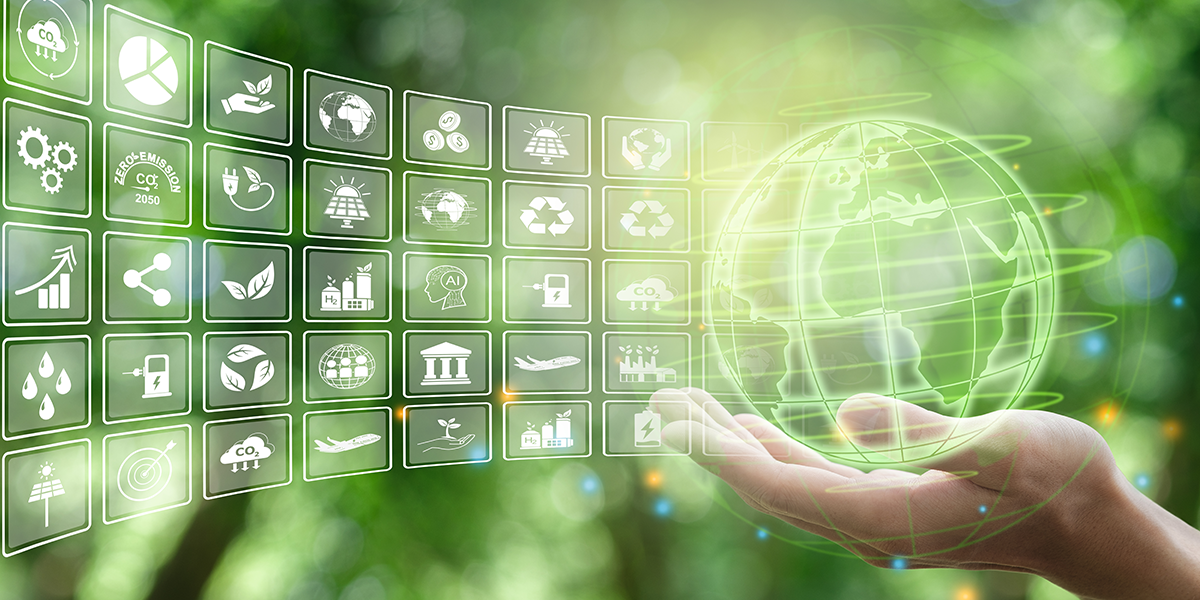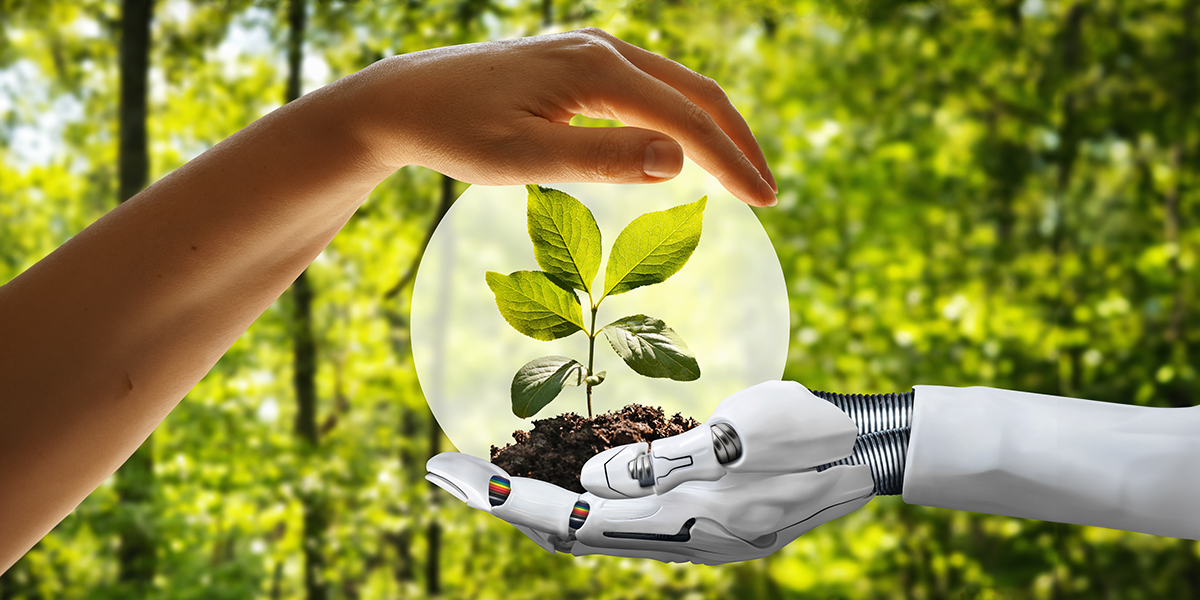In today’s business world and daily life, the concept of sustainability is taking on an increasingly central role. Climate change, resource depletion, and environmental impacts are driving societies and institutions to seek sustainable solutions. In this context, understanding terms related to sustainability helps increase awareness at both individual and institutional levels in the world of the future.
It’s safe to say that in the coming years, these terms will appear more frequently in various areas, from business strategies to lifestyle changes. In this article, we’ve prepared explanations of the commonly used and emerging concepts in sustainability for you.
Key Terms Related to Sustainability
Smart Growth: An economic growth model based on the principles of sustainable development, aiming for the efficient use of natural resources.
Biodegradable: Refers to materials that can break down through natural processes.
Biodiversity: Describes the variety of species within an ecosystem, essential for maintaining the health and balance of ecosystems.
Biomass Energy: A renewable energy source generated by burning organic materials to produce energy.
CDP: A platform that reports on environmental impacts such as climate change, water usage, and deforestation for industries in the business world.
Environmental Impact: The general term for the negative or positive effects of human activities on the environment.
Environmental Balance: Refers to the natural balance between living and non-living components in ecosystems.
Environmental Degradation: The damage caused by human activities to natural habitats.
Circular Economy: An economic model based on reducing waste and reusing and recycling resources.
Circular Supply Chain: A supply chain approach in which raw materials are reused and waste is minimized in production processes.
E-Waste: Electronic device waste with potential environmental impact.
Eco-Label: A certification that shows the environmental impact of products and documents their environmental performance.
Ecological Economics: An economic model advocating that economic activities should be in harmony with ecosystems.
Ecosystem: A biological community where living beings interact with each other and their environment.
ESG (Environmental, Social, Governance): An investment and business management approach based on environmental, social, and governance criteria.
Ecological Citizen: An individual who acts with environmental awareness and embraces the principles of sustainability.
Ecology: The scientific field that studies the relationships of living beings with each other and their environment.
Ecological Market: Markets that offer eco-friendly products and services aimed at sustainable consumption.
Impact Investment: Investments made in projects that provide social and environmental benefits.
Financial Literacy: The ability of individuals to manage financial resources in a sustainable way.
Fossil Fuel: Energy sources derived from fossil resources like petroleum and coal, which are gradually being replaced by renewable energy sources.
Recycling: The process of reprocessing used materials and reintegrating them into the production cycle.
Greenblushing: Refers to companies being unrealistic about their environmental goals and performance or remaining silent on sustainability issues.
Greenwashing: When companies portray themselves as environmentally friendly despite not being so and engage in misleading communications about sustainability.
Solar Energy: An environmentally friendly type of energy sourced from the sun and considered among renewable energy sources.
Habitat: The natural living space of an organism.
Air Pollution: Pollution resulting from the accumulation of harmful substances in the atmosphere.
Hydroelectric Energy: A renewable energy source derived from water power.
ISO 14001 (Environmental Management System): An international standard used by companies to improve their environmental performance.
IPCC (Intergovernmental Panel on Climate Change): A United Nations body that conducts scientific assessments on global climate change and promotes international cooperation.
Climate Activism: Awareness and action efforts by individuals or groups fighting against climate change.
Climate Anxiety: A state of concern caused by the environmental and economic threats posed by climate change and global warming.
Climate Change (Global Warming): The global increase in temperatures and related climate changes caused by the rise in greenhouse gases in the atmosphere.
Climate-Resilient City: Cities designed and developed with infrastructure to withstand the adverse effects of climate change.
Upcycling: A recycling approach where waste materials are repurposed into new products.
Geothermal Energy: A renewable energy source derived from deep within the earth’s crust, offering a sustainable alternative for energy production.
Carbon Footprint: The amount of carbon emitted into the atmosphere due to daily human activities.
Carbon Emissions: The amount of carbon dioxide released into the atmosphere as a result of burning fossil fuels.
Carbon Offsetting: Investing in carbon reduction projects to balance out emitted carbon.
Carbon Leakage: The transfer of production to another country due to the costs associated with reducing carbon emissions in one country.
Carbon Neutrality: Having a net-zero carbon emission status.
Carbon Tax: A tax imposed on every ton of carbon emitted to reduce carbon emissions.
Carbon Capture: Technologies designed to capture carbon dioxide emissions and store them underground or repurpose them.
Composting: The process of decomposing organic waste into fertilizer.
Corporate Sustainability: Companies conducting their activities with a long-term focus on environmental, social, and economic goals.
Corporate Social Responsibility (CSR): The efforts of companies to fulfill their responsibilities to society and the environment.
Global Warming: The rise in global temperatures resulting from an increase in greenhouse gases.
LEED (Leadership in Energy and Environmental Design): A certification system developed for energy-efficient and environmentally friendly building designs.
Life Cycle: The entire process of a product from raw materials to production, use, and waste.
Microclimate: Local weather conditions in a small area.
Microplastics: Plastic particles smaller than 5 millimeters that pollute the environment.
Net Zero: Achieving zero net carbon emissions by balancing emitted carbon.
Sharing Economy: An economic model based on the sharing of goods and services to use resources more efficiently, promoting sustainable consumption.
Regeneration: The self-renewal process of natural resources and ecosystems, essential for sustainability.
Wind Energy: A renewable energy source derived from wind power, contributing to clean energy production by reducing carbon emissions.
Greenhouse Gas: Gases that trap heat in the atmosphere and contribute to global warming, with carbon dioxide, methane, and water vapor being the main greenhouse gases.
Zero Waste: A waste management philosophy aiming to eliminate waste in production and consumption processes entirely.
Zero Carbon City: Cities that achieve carbon neutrality by eliminating carbon emissions in areas like transportation, energy, and waste.
Social Entrepreneurship: Business models providing innovative solutions to social issues and creating social value.
Social Capital: Resources and relationships obtained through trust, cooperation, and social networks within society.
Water Footprint: The total amount of water used directly and indirectly by an individual or organization. Efficient use of water is critical for sustainability.
Water Security: Ensuring safe, adequate, and clean access to water for communities. Climate change can threaten water security.
Sustainability: The balanced management of economic, environmental, and social factors to prevent the depletion of natural resources.
Sustainable Development: A development model that meets today’s needs without compromising future generations’ ability to meet their own.
Transparency Principle: Companies openly and accurately sharing their environmental and social performance, impacts, and activities.
Supply Chain: The chain of processes involved in the production, distribution, and sale of products from raw materials to the end consumer.
UNEP (United Nations Environment Program): A United Nations program working to address global environmental issues and promote sustainable development.
Efficiency Principle: Maximizing benefits by using resources in the least amount necessary.
Renewable Energy: Energy derived from sources like solar, wind, water, and geothermal that are continuously replenished by natural processes.
Green Finance: A type of investment aimed at funding projects that promote environmental sustainability.
Green Marketing: A strategy emphasizing the environmental benefits of products and services in marketing activities.
Green Investment: Financial investments in projects contributing to environmental sustainability.
These terms, which we will frequently encounter both in the business world and in daily life, serve as guides on the path to building a sustainable future. Every step we take to secure our shared sustainable future is of vital importance.
Sources
https://www.diken.com.tr/surdurulebilirlik-sozlugu/
https://recykal.com/sustainability-glossary/
https://sustainabilitydictionary.com/










Hello!
As writers for theBClog, we share with you articles that highlight current developments and inspiring ideas in various topics, from sustainability to technology, energy to climate, and innovation to human interest stories.
Enjoy!